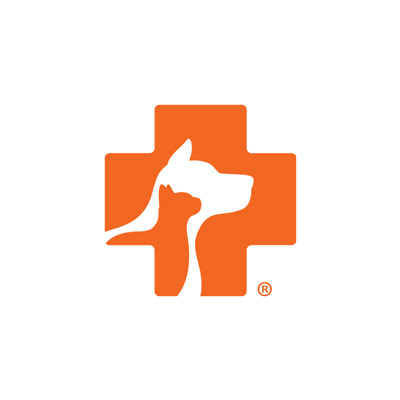75 Million Pets May Not Have Access to Veterinary Care by 2030, New Banfield Pet Hospital® Study Finds
VANCOUVER, Wash., Sept. 14, 2020 /PRNewswire/ — A new study from Banfield Pet Hospital® reveals an estimated 75 million pets in the U.S. may not have access to the veterinary care they need by 2030, with an important factor being a critical shortage of veterinarians. Further, with nearly 90% of veterinary professionals identifying as white according to the Bureau of Labor Statistics, the need to not only increase the number of veterinary professionals in the U.S. but also diversify the talent pipeline is a critical focus area at today’s annual Pet Healthcare Industry Summit.
As the nation’s leading provider of preventive veterinary medicine, and part of the Mars Veterinary Health family of practices, Banfield is committed to the following initiatives to increase the pipeline of veterinary professionals and build a more diverse industry:
- Increase representation within Banfield by ensuring 30% or more of its veterinarian and paraprofessional population are Black, Indigenous, People of Color (BIPOC) by 2030.
- Strengthen the pipeline of Black veterinarians by partnering with Mars Veterinary Health, Royal Canin and the Tuskegee University College of Veterinary Medicine to launch the Banfield & Royal Canin Student Support Fund with an initial $125K gift to help Tuskegee veterinary students who have financial need.
- A $1 million investment over the next year in equity, inclusion and diversity efforts to increase representation, offer training, and support industry efforts to improve the diversity pipeline.
“The veterinary profession is not only essential – we are in increasingly high demand. Today’s environment has only strengthened the human animal bond as pets provide unconditional love through these unpredictable times,” said Brian Garish, president of Banfield Pet Hospital. “Pets are here for us, and as veterinary professionals, we must be here for them. Banfield is committed to partnering with the veterinary industry to ensure the talent pipeline grows and diversifies to meet the evolving needs of pets, people and society.”
Understanding that systemic issues require systemic solutions, Banfield is also announcing a new coalition – the “Diversify Veterinary Medicine Coalition” – to ensure efforts to increase equity, inclusion and diversity (EI&D) among veterinary professionals are ongoing and industry wide. Founding coalition members include pharmaceutical company Boehringer Ingelheim as well as veterinary leaders from other Mars Veterinary Health practices, Royal Canin, Antech Diagnostics, the National Association for Black Veterinarians, the Association of American Veterinary Medical Colleges (AAVMC) and the Multicultural Veterinary Medical Association, aiming to add partners in the future to strengthen the talent pipeline of tomorrow. The coalition will work in partnership with a commission that is being established by the American Veterinary Medical Association, the AAVMC, the Veterinary Medical Association Executives and others, together aiming to drive equity, inclusion and diversity across the profession.
“We believe a culture of diversity, inclusion and belonging are essential to better understanding the customers and patients we serve,” said Randolph Legg, senior vice president, head of U.S. commercial business at Boehringer Ingelheim. “By joining the Diversity Veterinary Medicine Coalition as a founding partner, we are looking forward to help influence the necessary changes in our industry that will create more equitable opportunities for the profession.”
“We are honored to partner with Banfield and other organizations to address the challenges in the industry and create the change needed to foster a diverse and inclusive profession,” said Bob Betz, vice president – veterinary pillar, Royal Canin USA. “As a business dedicated to cats and dogs and the people who love them, we are committed to supporting them in one of the best ways we can – helping the veterinary experts we trust by providing opportunities to develop a more inclusive talent pipeline.”
“The AAVMC firmly believes in the value of diversity within the veterinary medical profession and attracting student populations that are more reflective of society as a whole,” said Andrew Maccabe, chief executive officer of the Association of American Veterinary Medical Colleges. “We look forward to partnering with Banfield and other industry leaders to continue our efforts in supporting and elevating underrepresented groups to help foster their success and growth in veterinary medicine.”

Banfield also commissioned a survey of high school and college students with Lincoln Memorial University College of Veterinary Medicine to examine why so few diverse students apply to veterinary colleges – so the industry can start addressing these barriers head-on. Key findings include 57% of all students surveyed had once considered becoming a veterinarian, and 32% changed their mind before graduating college. When looking at Black students in this population, over 50% said they were persuaded by someone else—a family member, friend, mentor or school counselor—to choose a different career. Together, we must leverage the collective strength of the industry to help increase representation, offer mentorship opportunities and prioritize targeted work with Historically Black Colleges and Universities (HBCUs) – with the goal of diversifying the pipeline of Black students entering veterinary colleges.
“With nearly 70% of Black veterinarians in the U.S. being Tuskegee graduates, we’re inspired by the work Banfield and Royal Canin are doing to continue to push for a more equitable, inclusive and diverse profession,” said Dr. Ruby Perry, dean of the Tuskegee University College of Veterinary Medicine. “We believe strongly in equality of opportunity and are honored to accept the $125K gift from both organizations towards helping to remove financial barriers for our students on their path to becoming veterinarians.”
This work can’t be done alone, and Banfield is proud to continue to partner with the industry and amplify the important work that so many veterinary professionals and organizations have already been doing.
For more information on Banfield, visit





